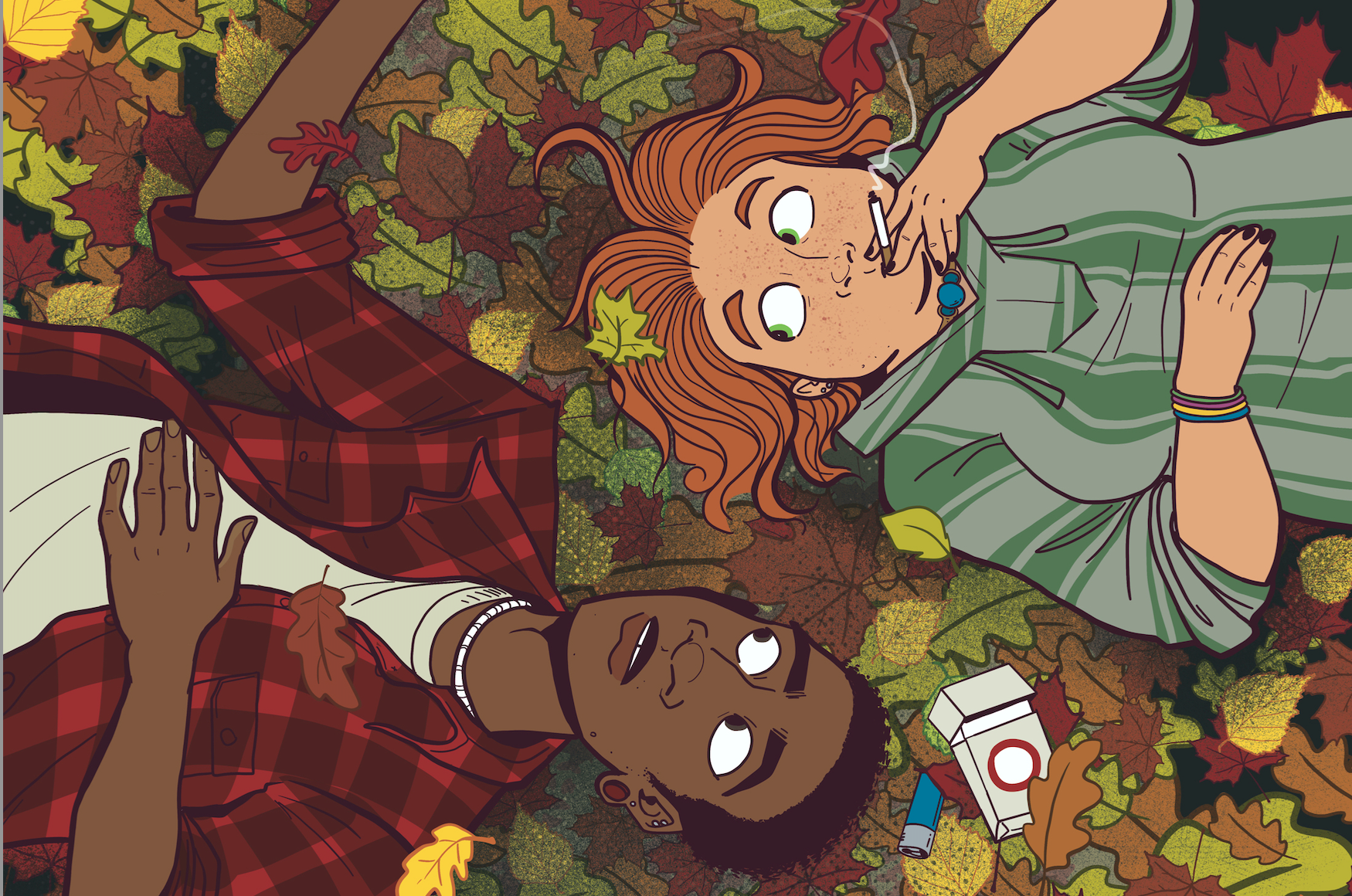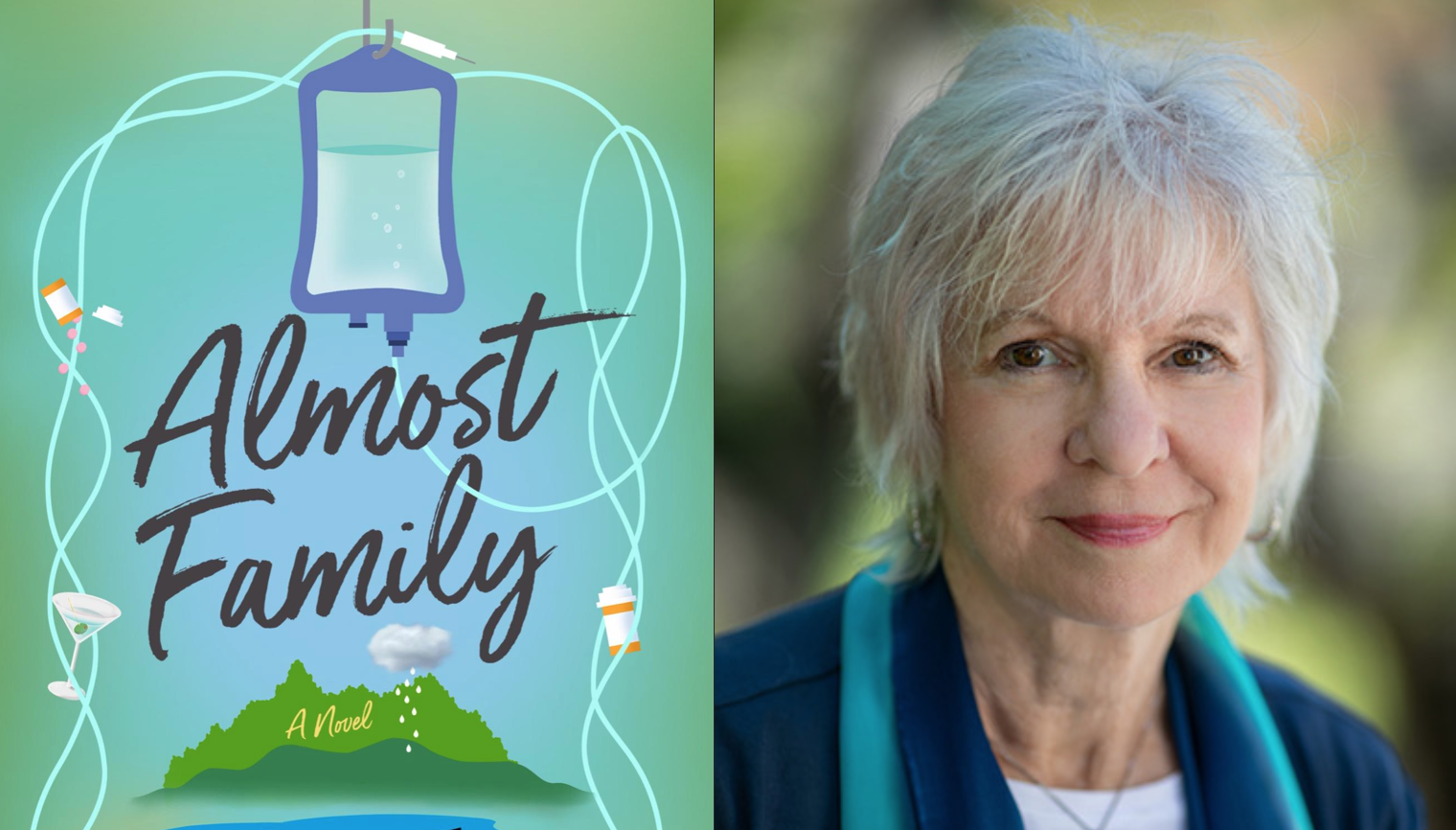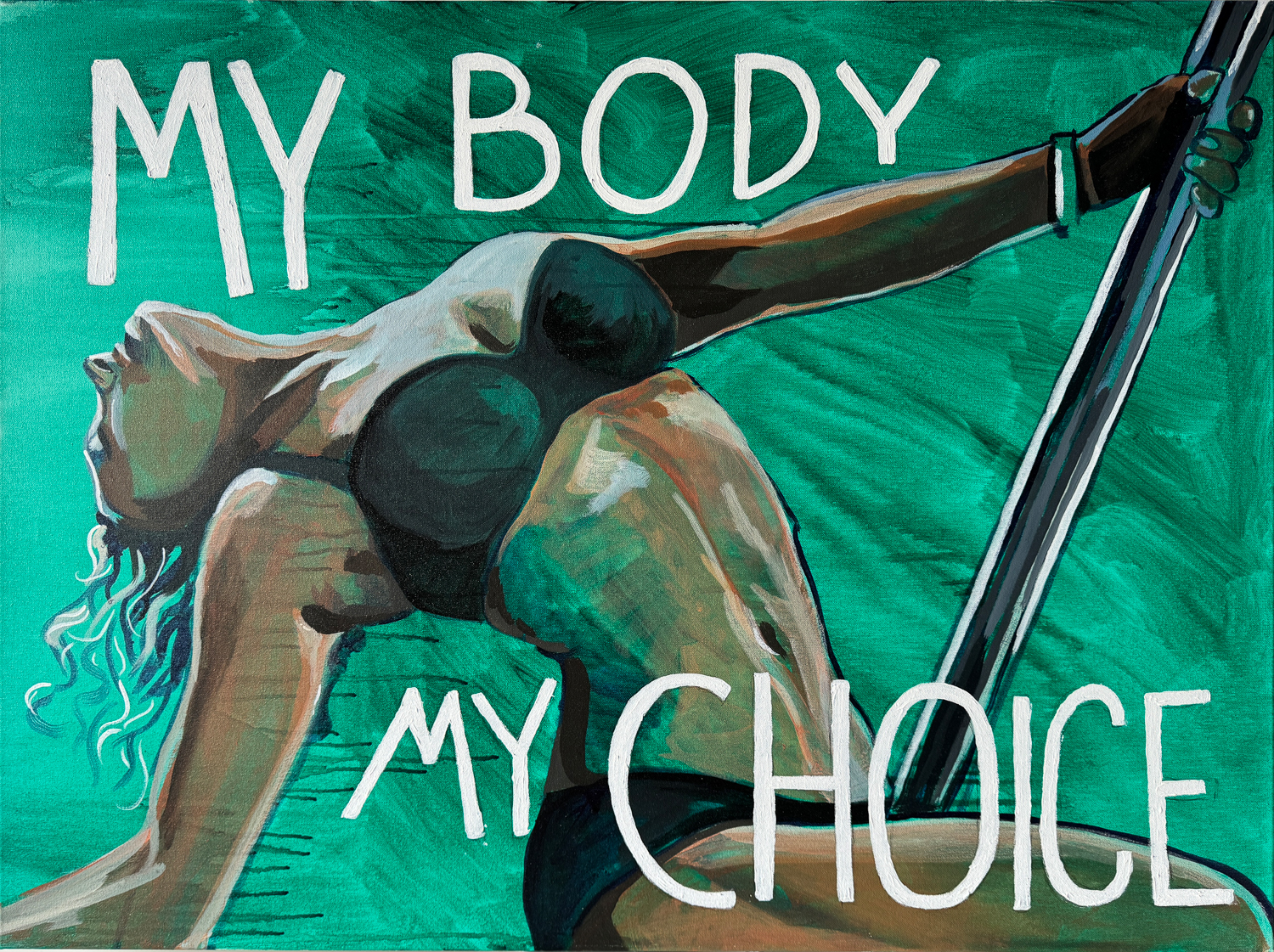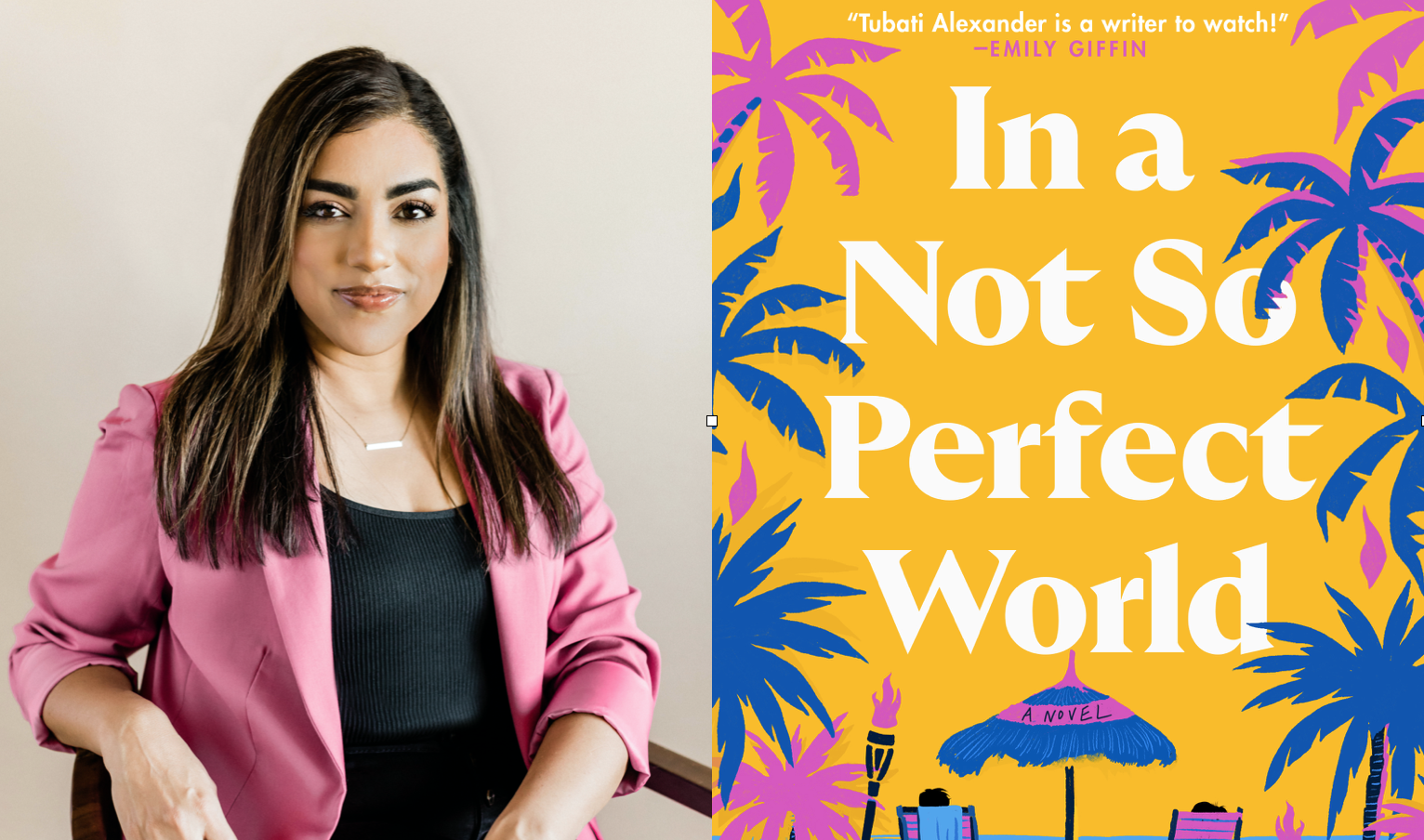
You are already familiar with her popular brand of queer, YA novels, as NYT Bestselling author Becky Albertalli’s previous book ‘Simon Vs. the Homo Sapiens Agenda’ was made into a blockbuster Hollywood film, ‘Love, Simon’. Now Becky is back, with a novel that is being described as her most personal story yet, ‘Imogen, Obviously’, out May 2nd.
Imogen Scott may be hopelessly heterosexual, but she’s got the World’s Greatest Ally title locked down. She’s never missed a Pride Alliance meeting. She knows more about queer media discourse than her very queer little sister. She even has two queer best friends: Gretchen, a fellow high school senior, who helps keep Imogen’s biases in check, and Lili—newly out and thriving with a cool squad of queer college friends.
Imogen’s thrilled for Lili. And now that she’s finally visiting Lili on campus, she’s bringing her ally A game. Any support Lili needs, Imogen’s all in. Even if that means bending the truth, just a little. Like when Lili drops a tiny, queer bombshell: She’s told all her college friends that Imogen and Lili used to date. And none of them know that Imogen’s a raging hetero—not even Lili’s good friend Tessa. Of course, the more time Imogen spends with chaotic, freckle-faced Tessa, the more she starts to wonder if her truth was ever all that straight to begin with…
This story is inspired by Becky’s own sexual awakening and her less-than-ideal coming-out experience, which you can read more about in her author letter HERE. Becky continues her dedication to creating heartfelt, coming-of-age novels with diverse central characters. The story dives into the ways in which friendships are tested by distance and secrets, complicated by gatekeeping and identity politics, and healed by honesty.
In the lead up to publication day, we had the chance to chat with Becky about her new book, why this is so personal to her, and why it is still so important to see queer stories in the mainstream, in an era of book-banning and LGBTQ+ legislative attacks.
Can you tell us how the story for ‘Imogen, Obviously’ came about?
Imogen’s story is fictional, but it was very much inspired by my own experience questioning my identity. Like Imogen, I was a committed ally to the many queer people in my life, and I absorbed and internalized a lot of queer community discourse. In retrospect, I can see that my interpretation of that discourse failed to make space for even the possibility of my own queerness. With Imogen, I really wanted to explore what that experience looked like from the inside.
There is so much power in seeing more queer coming-of-age stories in the mainstream. How do you personally feel about this?
I think it’s incredibly important. I grew up in the South in the 80s and 90s, at a time when queer media was much harder to find and access. When it came to understanding my own identity, I didn’t even have a solid frame of reference for it until much later. We still have so much work to do, particularly given the current climate of widespread anti-queer book bans. But I’m so grateful for the ways in which queer coming-of-age stories made my own identity click into place, and I know that’s been the case for so many other people.
Friendships can be complex, and this is certainly the case with Imogen and her friends. How does identity play a role in this complexity in your book?
In Imogen’s case, I think a lot of this complexity comes from our tendency to take an overly rigid approach to questions of identity. Imogen’s core understanding of queerness comes from observing her queer friends and family members. Since her own experience plays out a bit differently, she has a hard time seeing it as validly queer. This gets even more complicated when Imogen’s friend Gretchen makes broad generalizations about queerness that are actually deeply rooted in her own specific experiences. There are several moments in the story where Gretchen’s bold certainty leaves no space for Imogen’s emerging questions.
Your groundbreaking book ‘Simon Vs. the Homo Sapiens Agenda’ was turned into the major motion picture, ‘Love, Simon’. What was this experience like for you as an author, and how did you feel seeing your story loved by such a wide audience?
It was very surreal! I truly loved getting to participate in the adaptation process, and I’m a huge fan of the film itself. Things got a little more complicated for me once ‘Love, Simon’ released, since online discourse about the film often veered toward targeted scrutiny. It can be hard for me to untangle those experiences from the film’s overall impact—but I really am so proud of it, and I’m so glad it exists.
Was there any aspect of the story that was challenging or difficult to write?
I think one challenge for me was feeling like I even had the right to tell this story. There’s still a big part of me that feels like an outsider in queer spaces, and it often feels like I haven’t quite earned my right to speak as a member of the community.
Why is it imperative that we hold space for nuance and complexity in each other’s stories, especially when it comes to the LGBTQ+ community?
It’s absolutely critical. The queer community is incredibly diverse, along every single axis, and we alienate so many people when we fail to interrogate our own assumptions and biases. There is no definitive Queer Experience, nor is there a wrong way to exist as a queer person. Of course, there’s joy and power in recognizing shared experiences and common ground—but we have to make space for the variation that often comes with intersectional, cultural, and generational differences.
In your beautiful author letter, you write “this book is about disrupting your own default”. Can you share more about this and what it means to you?
For me, this speaks to the idea that I was really entrenched in a particular framework for understanding my own identity. I saw myself as straight; therefore, my longtime interest in queer media was just a sign of my committed allyship. The crushes I had on women probably weren’t real crushes. Maybe I was even appropriating queer attraction. The truth seems so obvious in retrospect, but it was really, really hard to step outside the framing I’d previously established.
What do you hope readers, especially queer youth, will love most about ‘Imogen, Obviously’?
I hope readers will come away with a reminder that identities don’t need to stick to one particular mold, nor do they need to follow any particular time frame. You get to define yourself in your own terms, full stop.
You can pre-order ‘Imogen, Obviously’ by clicking HERE, and follow Becky Albertalli on Instagram to keep up to date with her work!

















